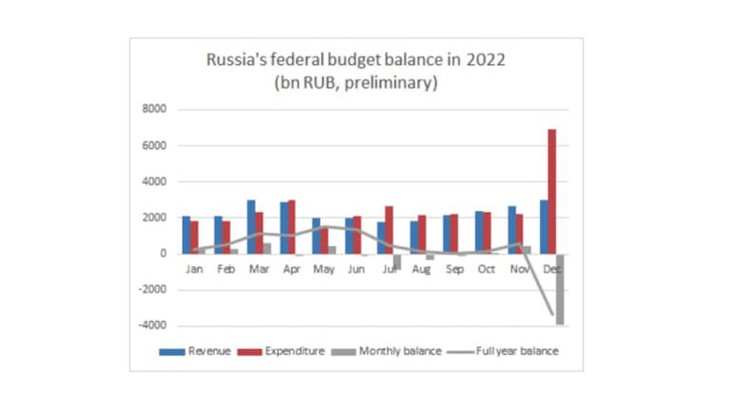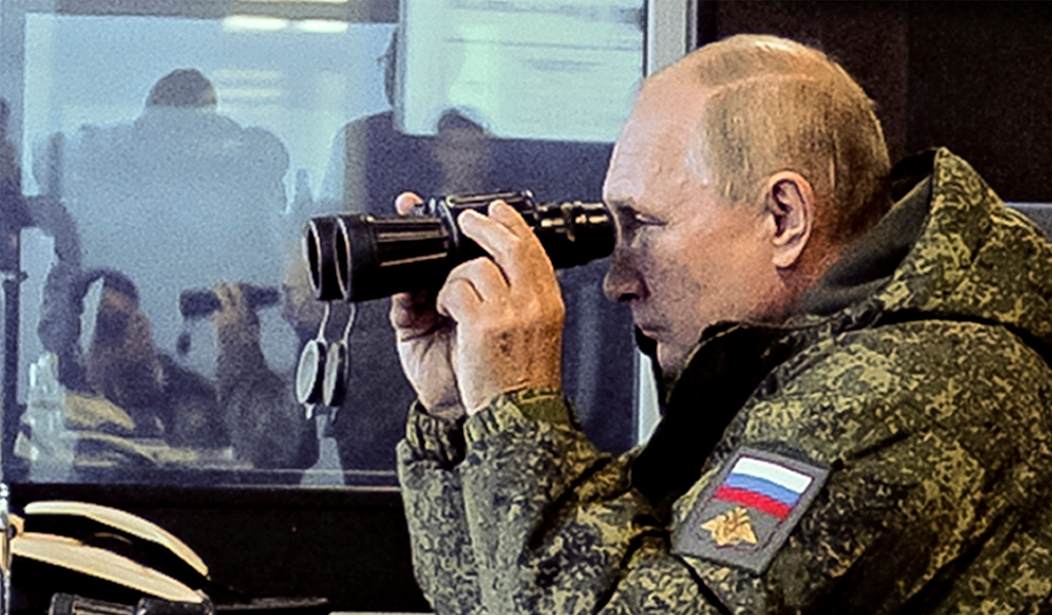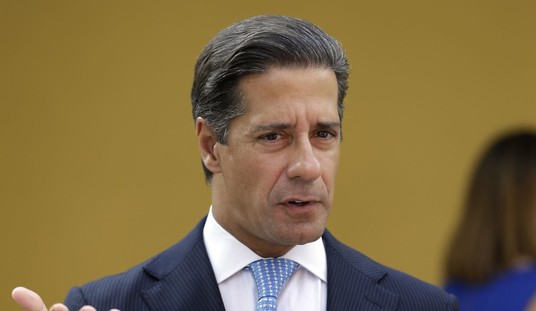After a full year of economic warfare against Russia by NATO allies, is the Russian economy finally showing signs of cracking? There’s certainly something going on this year and it’s probably making Vladimir Putin increasingly nervous. MSN is reporting that Moscow’s budget numbers for the month of January have just been released and the massive deficit that was registered appears nothing less than “catastrophic” in the eyes of financial analysts. December was bleak for them also, so in a two-month period, the nation’s deficit soared to levels not seen since the 1990s. And the biggest driver of the collapse is believed to be the country’s shrinking oil revenue in the face of new EU embargos and price caps.
The Russian budget started January in its deepest deficit in years, according to the result released by the Ministry of Finance (MinFin) on January 6.
The figures published by the Ministry of Finance on the execution of the federal budget in January 2023 look catastrophic: the deficit for the month amounted to RUB1.76 trillion ($24.8bn) – the deepest January deficit since 1998, reports The Bell.
The poor fiscal performance in January stains otherwise upbeat opening of the year for the Russian economy with strong manufacturing PMI reading and upbeat growth outlook revisions.
This is the second month in a row that Russia has gone deeply into the red. December was similarly “catastrophic” in terms of revenue and expenditures. A quick look at this chart tells the story.

What seems curious about this is the sudden nature of the change. Russia has been facing huge sanctions and has been locked out of many international markets since the beginning of the invasion of Ukraine. But the Russian economy really didn’t seem to be impacted all that much for quite some time. In fact, they were running a surplus until July of last year. And even after that, the deficits they registered weren’t all that significant.
Then, in December, their economy seemed to fall off a cliff. It’s not that their revenues had fallen. (In fact, revenue was actually higher in December than in the preceding seven months.) But their expenditures soared to more than three and a half times what they had been averaging over the course of the year.
But this might not be a permanent condition and sanctions can’t be given all of the credit for it. VTB Capital analysts quoted in the linked article describe the December and January shortfalls as being “probably an aberration” which will rebound in the coming months. Moscow has reportedly already begun trimming some non-war spending this year, and those adjustments are expected to continue.
But what if they don’t? That’s the big question we should probably be pondering. Would a sufficiently large and sustained hit to Russia’s economy ever be enough to bring Vladimir Putin back to the bargaining table with Ukraine? Or perhaps even pull back out of the country entirely?
That seems unlikely, at least to me. Putin has already invested far too much in this war to simply take his ball and go home. A full withdrawal would likely be seen as an abject failure of what may very well turn out to be the last major expedition of his life. And Putin’s ego probably couldn’t tolerate such a thing. But if the Russian people start seriously feeling the pinch from government shortfalls, the pressure may grow great enough for someone inside the Kremlin to start looking seriously at regime change options.








